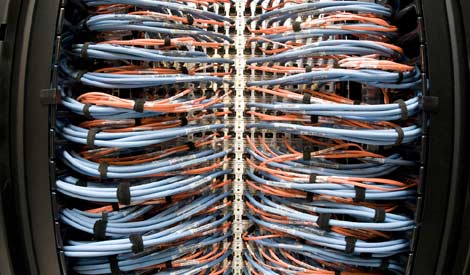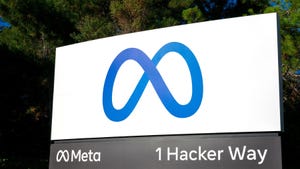ARIN: Final Phase of Countdown to Last IPv4 Address BeginsARIN: Final Phase of Countdown to Last IPv4 Address Begins
ARIN has entered the fourth and final phase of its countdown to the last IPv4 address in its inventory
April 30, 2014

It is no secret that the number of IPv4 addresses has become critically low. American Registry for Internet Numbers (ARIN) is down to the final /8 (around 16 million addresses) and has moved into Phase Four, the final phase, of its IPv4 countdown plan. This means the registry may no longer be able to fulfill all qualifying IPv4 requests.
"In the early '90s we realized that if things continued as they were we would be out of IPv4 addresses in a few years," Owen DeLong, ARIN advisory council member and director at Hurricane Electric, said. "Things changed. Network Address Translation (NAT) was developed and Classless Inter-Domain Routing (CIDR) and some other technologies that allowed us to conserve addresses."
While those changes slowed address consumption down, they did not stop it. Today, every Regional Internet Registry (RIR) has developed an "austerity policy," DeLong continued. Europe is more than one year into its austerity plan, and it has been more than two years for Asia Pacific. ARIN has 16 million addresses to go before its austerity policy goes into effect, and Latin America and Caribbean Network and Information Center (LACNIC) is close to triggering its plan.
In Phase Four, ARIN will process all IPv4 requests on a "first-in-first-out" basis. Every request will undergo team review, and requests for /15 or larger will require department director approval, which may mean a longer turn-around.
A Quick Primer
Many Data Center Knowledge readers know the difference between IPv4 and IPv6. If so, go ahead and skip the next few paragraphs. For those who do not, IP addresses are core to the Internet. Similar to a phone number, an IP address is what identifies a device connected to the internet. The concept is fundamental to the way computers communicate with each other.
Each IPv4 address has 32 bits, and its address space can support about 4.29 billion addresses. While tremendous at the time of creation of IPv4, the limit is restrictive today.
An IPv6 address uses 128 bits, which means the protocol can support an exponentially larger number of addresses. The number is so large that it uses Hexadecimal notation rather than dotted decimal notation. IPv4 has 232 possibilities, while IPv6 has 2128 possibilities.
New Market Arising: IPv4 Brokers and Auctions
In response to the shortage, a new industry of brokers and auction houses that deal with IPv4 addresses has arisen. Many of the IPv4 addresses have been assigned, though not necessarily used, and these marketplaces list the number of IPv4 resources that are still available. In February, for example, a company called Hilco Streambank launched a auction marketplace that provides liquidity for IPv4 address sellers and connects them with buyers.
Broker IPv4 Market Group believes potential legal issues in this highly regulated space make such auctions not feasible. An auction winner may end up not getting the approval to get the addresses they have won, leaving the seller in limbo as well. Some bidders are illegitimate; no contract terms are established other than pricing.
Hence, brokers are stepping in to lend end-to-end IPv4 address transaction expertise, helping with marketing, sales, the transfer process and the financial aspects. IPv4 Market Group also provides legal and technical advice.
Both auctions and brokerages are band-aids, however. The space will run out, potentially causing the prices of IPv4 addresses to skyrocket and making a fast-track transition to IPv6 ever more urgent.
DeLong is not a fan of either brokerages or auction houses. "I’m old-school in this regard," he said. "I feel that the whole idea of treating address resources as a resale commodity is distasteful at best. These are a community resources that [were] handed out without charge on the basis of actual need for the addresses. It’s pretty clear to anyone who was around in the early days that if you had addresses you no longer needed, you were expected to return them to the community for use elsewhere. I regard all of these monetized transfers as being more of a necessary evil to bridge a (hopefully) short-term gap rather than a desirable state of affairs."
Hilco Streambank CEO Gabe Fried responded to concerns. “Our policy is that a buyer cannot close a transaction for any reason, we move on with the next highest bidder and prohibit that bidder from further participation,” said Fried. “In our first auction using this platform we had several dozen rounds of bidding between multiple buyers for our smaller blocks, and those transactions have closed. We’ve successfully completed numerous transactions that were initiated on our auction platform to the satisfaction of both buyer and seller. Additionally, the auction platform is designed only to automate the bid/ask portion of the transaction, and not to provide all of the post-closing transaction support. We still do that by hand, as we do with our traditional brokerage services.”
IPv6 Switchover Progress Slow
The switch-over progress has not been as good as it needs to be. "There’s good news and bad news here," DeLong said. "The good news is that people are starting to pay more attention to this issue and adoption is accelerating. The bad news is that we really should have been at this point over a decade ago, and IPv6 should be almost fully deployed by now."
ARIN's announcement of the final phase should serve as a wake-up call, he said.
About the Author
You May Also Like







